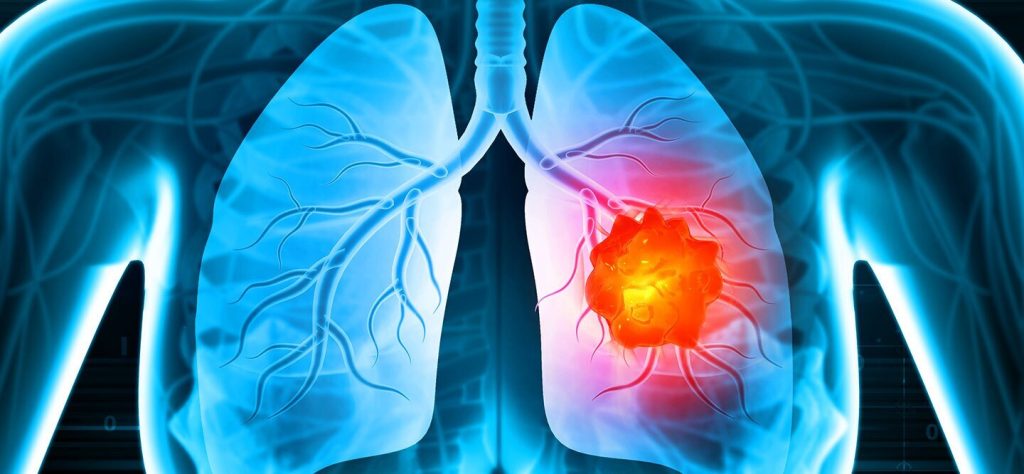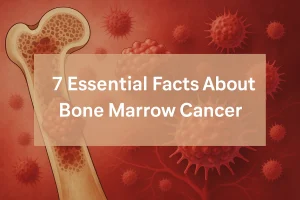
Best Lung Cancer Treatment in India
Lung cancer is a serious issue, but thankfully India offers multiple advanced treatment options. This post gives you the low-down on these treatments, focusing on revolutionary therapies, top-notch healthcare facilities, and professional care. Lung cancer starts in the lungs and can travel to other body parts. There are two main types: non-small cell lung cancer (NSCLC) and small cell lung cancer (SCLC). Each type demands a unique treatment approach. Early discovery and treatment greatly enhance survival chances.
Progressive Lung Cancer Treatments in India
In India, lung cancer treatments have advanced leaps and bounds, introducing new technologies and therapies. We will look into the main treatment options available, what they involve, and how they help.
1. Surgery
Surgery is often preferred for early-stage lung cancer. Its aim: get rid of the tumor and its neighboring tissues to halt the cancer spread. The kind of surgery will depend on factors like cancer size, position, stage, and the patient’s overall health.
- Lobectomy: The most often done surgery for lung cancer, which involves getting rid of one entire lung’s lobe. It is usually done when the tumor is limited to one lobe.
- Pneumonectomy: A process where the entire lung is removed. This is considered when the cancer affects a larger part of the lung and occupies a central part.
- Segmentectomy or Wedge Resection: Small, wedge-shaped parts of the lung containing the tumor are removed in these processes. These are generally used for smaller tumors or when saving lung function is a must.
- Minimally Invasive Surgery: Video-Assisted Thoracoscopic Surgery (VATS): A less invasive surgical option using a tiny camera and specialized instruments. It minimizes recovery times, pain, and complications compared to traditional open surgeries.
-
Radiation Therapy
Using high-energy radiation to destroy cancer cells or shrink tumors. It can stand alone or work with other treatments like surgery, chemotherapy. It’s very suited for patients unable to undergo surgery.
- External Beam Radiation Therapy (EBRT): It directs radiation beams at the tumor from outside the body. This treatment usually extends over weeks.
- Stereotactic Body Radiation Therapy (SBRT): An enhanced radiation therapy that transfers high doses of radiation to the tumor precisely. It minimizes damage to the healthy tissue surrounding it. It’s great for small early-stage tumors and for patients unfit for surgery.
-
Chemotherapy
This uses potent drugs to destroy rapidly dividing cancer cells. It can be used before surgery to shrink tumors, post-surgery to destroy any hidden cancer cells, or as the main treatment for highly developed lung cancer.
- Administration: Chemotherapy drugs can be taken orally or injected intravenously (IV). The treatment is commonly provided in cycles, with treatment followed by rest periods.
- Combination Chemotherapy: A mixture of drugs is often used to maximize effectiveness and reduce resistance. Common drugs for lung cancer include cisplatin, carboplatin, paclitaxel, and gemcitabine.
Also Read: Immunotherapy vs. Chemotherapy: What’s the Difference?
-
Targeted Therapy
This involves drugs that specifically match molecular shifts in cancer cells, promoting their growth and spread. These therapies are designed to interfere with specific proteins or genes involved in cancer formation.
- EGFR Inhibitors: EGFR inhibitors, like erlotinib and gefitinib, aim at the EGFR gene mutations in non-small cell lung cancer (NSCLC). These block the signals promoting cancer cell growth.
- ALK Inhibitors: These, like crizotinib and ceritinib, aim at genetic changes in the ALK gene. They’re efficient for patients whose tumors have ALK gene rearrangements.
- Other Targeted Therapies: More treatments are available for gene mutations like ROS1, BRAF, and MET. They offer a more personalized treatment approach, enhancing results for patients with specific genetic profiles.
-
Immunotherapy
Using the body’s immune system to fight cancer. This has changed the game for advanced lung cancer treatment, providing new possibilities for patients with spread disease.
- Checkpoint Inhibitors: These drugs, such as pembrolizumab (Keytruda) and nivolumab (Opdivo), block proteins that stop the immune system from destroying cancer cells. By inhibiting these checkpoints, the immune system can spot and eliminate cancer cells more effectively.
- Benefits: Immunotherapy can lead to lasting responses and improved survival rates for some patients. It’s usually used for advanced NSCLC and can work with chemotherapy for improved results.
-
Dendritic Cell Therapy
A type of personalized immunotherapy from Denvax India. This treatment creates a vaccine that targets cancer cells using the patient’s own immune cells.
- Process: The patient’s dendritic cells (a type of immune cell), are extracted from their blood and exposed to cancer antigens in the lab. The primed cells are replaced into the patient’s body, helping to power the immune system to launch on and decimate cancer cells.
- Advantages: This therapy is very personalized, and tailored to each patient’s specific cancer characteristics. It brings hope to lung cancer treatment by enhancing the body’s natural ability to fight back.
Multidisciplinary Approach to Lung Cancer Treatment
A multidisciplinary approach involves a teamwork strategy, ensuring a comprehensive care plan. This team includes experts in chemotherapy and targeted therapy, radiation therapy, surgical, lung, diagnosis experts, nurses, and support staff.
Supportive Care and Rehabilitation
Supportive care is key for lung cancer patients. It manages symptoms, side effects, and provides emotional support. Rehabilitation services help regain strength and increase quality of life. Pain management, nutritional support, psychological help, and physical therapy are all part of the supportive care process.
Selecting the Right Treatment Center
Selecting the right care center is crucial for optimal outcomes. Look for experienced oncologists, the newest technology, comprehensive care, and a patient-centered approach. Look for the lung cancer treatment cost in India. Treatment cost in India varies based on treatment type, hospital, and location. Compared to Western countries, surgery, chemotherapy, and radiation therapy are generally more affordable. Many hospitals also offer financial help for global patients.
Also Read: Lung Cancer Treatment & Its Cost in India
Conclusion
With advanced treatments, seasoned specialists, and full care, India is a top global destination for lung cancer treatment. Denvax India offers immunotherapy that will surely help. Denvax focuses on tailor-made therapy. We help the immune system target and eliminate lung cancer cells, providing new treatment options for advanced cases. This way, we help boost survival chances and life quality. Denvax India’s caring team is ready for you with skilled oncologists and up-to-date tech. They design each treatment to fit your needs. Pick Denvax India, it’s a top choice for lung cancer treatment in India. Get control back and let your body do the fighting.
Also Read: Immunotherapy For Stage 4 Lung Cancer







